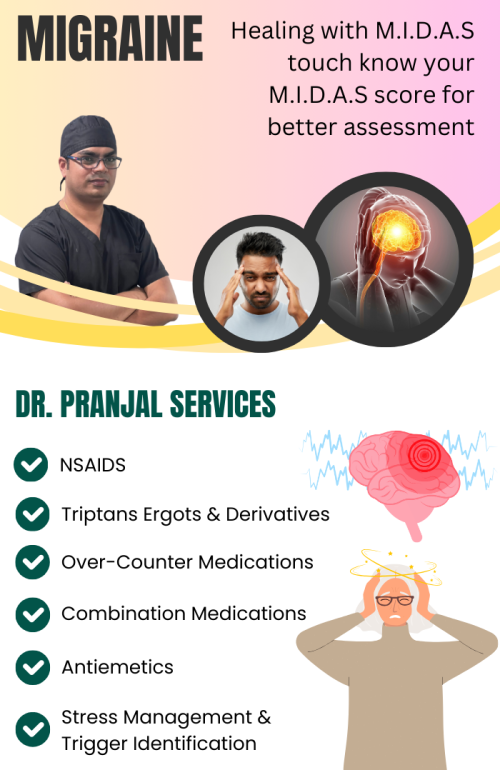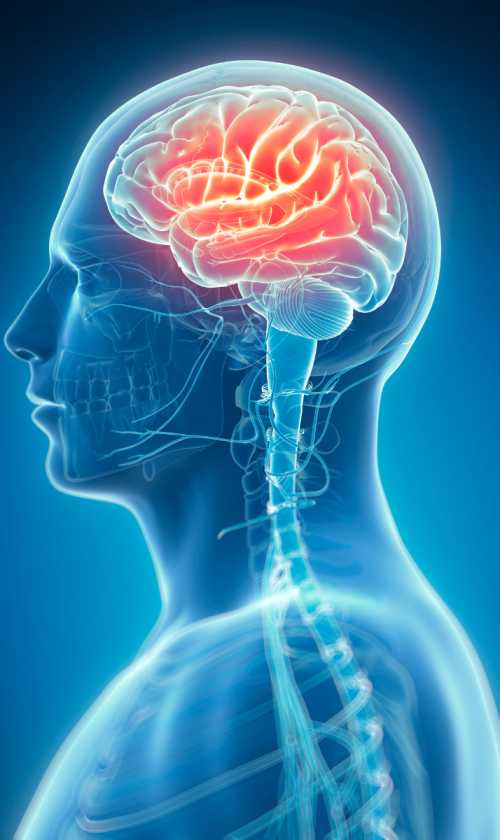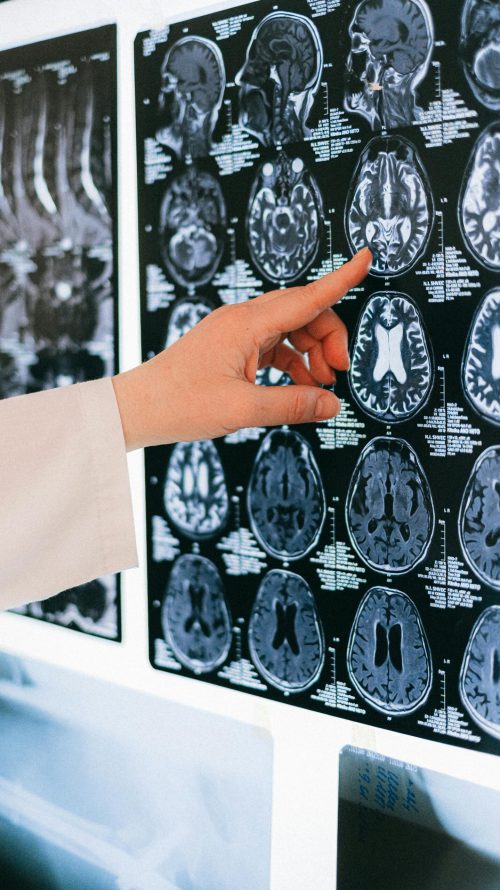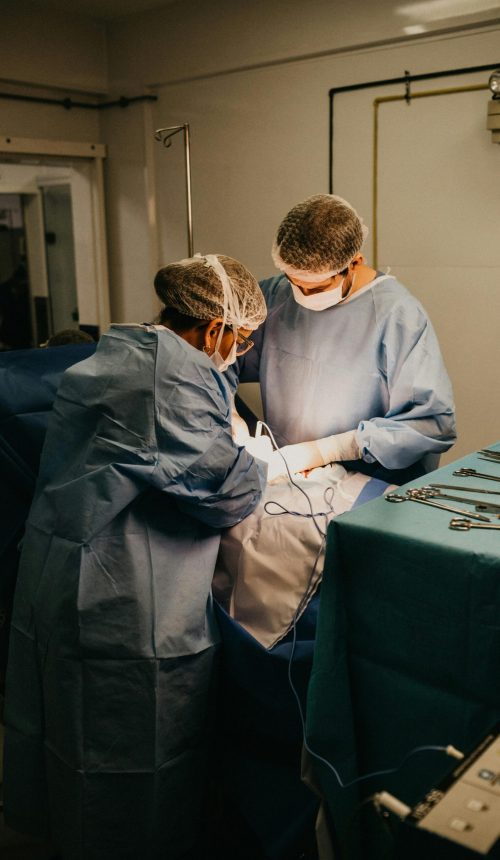Migraine
MBBS, MS (General Surgery), M.Ch. Neurosurgery. A neurosurgeon with over 10 Yrs. years of experience Awarded as the best resident in Neurosurgery and was a regional & zonal winner at TYSA neurosurgery.
Migraine Headaches
A migraine is incapacitating, throbbing, one-sided headache. Exhaustion, nausea, changes in vision, irritation, and other symptoms can be brought on by movement, lights, noises, and other stimuli. So that migraines don’t let migraine take over your life and consider a consult with Dr. Pranjal Pandey in Delhi.
What is a migraine?
A migraine is an intense headache radiating to one side of the brain, generating pulsating, throbbing pain. A migraine’s headache phase typically lasts four hours or longer, but it sometimes lasts for days. This headache intensifies with when:
1. Exercise.
2. Bright lights.
3. Loud sounds.
4. Powerful smells.
Related Treatments
- Brain Tumor Surgery
- Neuro Infections
- Spine Disorders
- Cerebral Palsy
- Dementia Treatment
- Stroke Paralysis
- Brain Hemorrhage Treatment
- Parkinson’s Disease
- Dementia Treatment
What are the types of migraines?
Migraines can be of several sorts. The most typical types of migraines are:
1. Aura-producing migraine (classic migraine).
2. Common migraine, or aura-free migraine.
3. before the head pain starts (aura).
Other types of migraines consist of:
4. Childhood migraines (abdominal migraines).
5. Recurring migraine.
6. Paraplegic headache.
7. Migraines while menstruation.
8. Headache-free migraine (silent migraine).
9. Ocular migraine or retinal migraine.
10. Migrainous state.
Symptoms and Causes
What are the phases of a migraine?
1. Prodrome:
The initial stage starts up to a day before the onset of headache symptoms.
2. Aura:
A cluster of sensory, motor, and verbal symptoms known as an aura serves as a precursor to a migraine headache. The aura phase may extend to sixty minutes or only five. It’s possible for you to feel the aura and heavy headache simultaneously.
3. Headache:
A migraine headache can last anywhere from four to seventy-two hours.
4. Postdrome:
This phase often lasts a few hours and a full day. The postdrome phase is referred to as a migraine hangover because symptoms resemble an alcohol-induced hangover.

Contact Dr. Pranjal Pandey Today
Migraine symptoms

Depending on the stage, migraine symptoms change. Since each migraine is unique, you might not always have symptoms during all four phases of the attack.
1. Signs of prodrome
2. Altered perception Feelings shift.
3. Inability to concentrate.
4. Difficulty in falling asleep.
5. Weary /Fatigue.
6. Nausea.
7. Thirst and hunger are increased.
8. A lot of urine production.
9. Aura signs and symptoms
10. of weakening of the muscles.
11. Vision shifts.
12. Your ears are ringing (tinnitus).
13. Touch sensitivity, or the perception that you are being touched.
14. Tingling and numbness.
15. Difficulty focusing or speaking.
What does a migraine feel like?
The severe pain of migraine feels like:
1. Throbbing.
2. Pulsing.
3. Striking.
4. Dull.
Everybody experiences a migraine differently. There are many severity levels for migraine headaches. Side headaches are the initial instincts of migraine. In addition, discomfort near your eyes or temples may occasionally radiate to your face, sinuses, jaw, or neck.
What is the Frequency of Migraines?
Each person has migraines at different frequencies. One migraine may occur once a year or once a week. Most individuals encounter two to four times a month on average. They occur most frequently in the morning. The majority of migraines are random, but occasionally, such as right before a period or right after experiencing stress, you may predict when one will occur.
What Causes a Migraine?
Although the precise etiology of migraines is unknown, research indicates that heredity may be one of the factors for migraine causes.
Migraine reason is associated with the brain, the brain receives pain signals from specific blood vessel nerves. Due to this the blood vessels and nerves get inflamed. Your nerves do it for no apparent reason.
How Does a Migraine Start?
Something that sets off symptoms is called a trigger. The migraine triggers include:
1. Tension.
2. Hormonal changes.
3. Certain drugs.
4. Alterations to your sleep patterns.
5. The weather fluctuates.
6. Overindulgence in physical activities.
7. Addictive drugs, such as smoking or coffee.
8. We are Skipping a meal.
9. Exposure to strong smells, loud noises, or bright lights.
You can find your triggers with the assistance of migraine specialist Dr. Pranjal Pandey in Delhi.


Do Migraines Run in Families?
Indeed, migraineurs typically come from biological families. Eighty percent of migraineurs have a first-degree biological family who also suffer from severe headache causes.
What are the Migraine Risk Factors?
- From toddlers to adults, anybody might get a migraine. The likelihood of experiencing a migraine is higher in women and those labeled as female at birth than in men and those identified as male at birth.
- There are additional risk factors that might increase your likelihood of having a migraine, such as:
Migraines in the biological family history. - Underlying medical problems (epilepsy, anxiety, depression, and sleep difficulties).
Usage of tobacco products regularly.
Diagnosis and Tests
How is a migraine diagnosed?
After doing a neurological and physical examination, a medical professional will identify a migraine. You can get your best treatment for migraine after going through tests. To find out more about your symptoms, your doctor could ask you the following questions:
Which symptoms are you experiencing?
1. What is the location and sensation of your headache?
2. What level of severity do you have?
3. What was the duration of your symptoms?
4. Has anything improved or made you have a heavy headache?
Your doctor may also prescribe blood tests and imaging tests (such as an MRI or CT scan) to rule out any other possible reasons for your headache. Your doctor may use an electroencephalogram (EEG) to rule out other conditions mimicking migraine prevent further problems.
Which Drugs are Used to Treat Migraines?
If you get migraines, your doctor may advise you to take migraine medication. There are two categories of drugs available:
Medication to Prevent Migraines:
These can be used as soon as a migraine is suspected. They eliminate or lessen sensitivity, discomfort, nausea, and other migraine symptoms.
Drugs used to stop migraines: Preventive medicine is often prescribed by a Migrain expert in Delhi Dr. Pranjal Pandey, if you suffer from severe symptoms that disrupt your daily routine or if you have migraines frequently.these medicines will help you in lowering your migraine pain. You can take these drugs as prescribed, generally once a day.
Typical Migraine Medication Include:
1. 5-hydroxytryptamine derivatives triptans.
2. Non Steroidal Anti Inflammatory drugs
3. Opoids and its derivatives
4. Ergot alkaloids and its derivatives
4. Medicines that prevent vomiting (metoclopramide).
Can One Avoid Getting a Migraine?
Not every migraine can be avoided. However, you can lessen the frequency and intensity of migraine attacks by taking preventative medicine as prescribed by your doctor. Additionally, you may collaborate with your migraine doctor Pranjal Pandey in Delhi to identify and prevent your triggers by learning more about them.


When Should I Visit a Medical Professional?
Make an appointment with your physician if you encounter:
1. Fresh signs and symptoms.
2. Deteriorating signs.
3. Treatment-related side effects.
4. Make an immediate call to 103 (or your local emergency services number) or visit an emergency room if you:
5. Feel the thunderclap headache, the worst headache of your life.
6. Experience fresh neurological symptoms, such as trouble speaking, dizziness, balance issues, visual problems, disorientation, or seizures.
Contact Dr. Pranjal Pandey Today
Expert care for Migrane in Delhi
Are the migraine crises causing you a total mess in your daily activity? Get a great deal of help with the great expense of migraine treatment with Dr Pranjal, who is the best doctor for migraine treatment in Delhi and will help you with your migraines at a lower cost.
Dr. Pranjal Pandey (migraine specialist in Delhi) is already making waves in the medical circles for his knowledge and technical input in working towards migraine headaches. Dr Pandey, an established neurosurgeon who has served his community for over ten years, comes with vast knowledge and unprecedented care for each patient he serves.
Take the next step towards the best possible migraine treatment plan with Dr Pandey’s personalized approaches for migraine headache treatment in Delhi. By creating individual treatment plans employing the most up-to-date methods and a comprehensive understanding of neurology, he helps his patients deal with realistic problems on a personal level.
Let your splendid days of being pain-free and full of vitality begin! As one of the top trained Migraines doctors, Dr Pranjal Pandey gives the best treatment, which helps reduce pain, nausea, and other debilitating symptoms. You can use different abortive or preventive strategies, but Dr. Pandey can advise you and show you the direction to relief an overall management plan.
Don’t let the migraines rob you of a single moment of your life. Have faith in Dr Pranjal Pandey to come up with a viable treatment plan based on melding compassion, experience and sensitivity to destroy these migraine headaches in Delhi. Welcome! To your brighter pain, pain-free tomorrow – see you about a consultation today.
